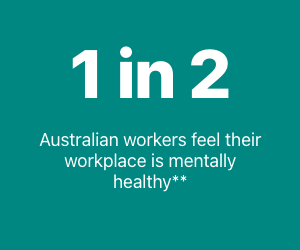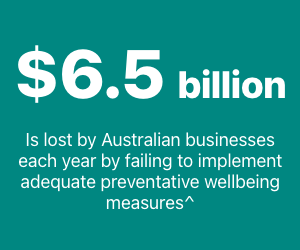By Dean Beattie
•
May 15, 2025
Have you ever felt like you're running in place, spinning your wheels but not getting anywhere? Is it becoming more commonplace in your life that you’ve noticed it a heck of a lot more? That sense of being "stuck" can creep into any area of our lives – our bodies, our minds, even our emotions. As recently retired individuals, business owners, or entrepreneurs, you're likely accustomed to a life of activity and purpose. When that momentum slows, it can be unsettling. It’s a feeling that left unchecked, can start a snowball effect of poor behaviours or thoughts, ones that will never serve you in any way, shape or form. Perhaps you're experiencing the following: Physical stiffness or tension : Aches, pains, or a feeling of being physically constricted. You know it’s not from exercising because you’re careful. It’s when you’re stationary but not fully relaxed. You’ll feel tense yet you can fathom why. Mental fog or lack of motivation: Difficulty concentrating, feeling overwhelmed, or a loss of interest in things you once enjoyed. This is when you know something needs to change. It’s such an uncomfortable feeling. The fog or lack of motivation has slowly crept in unnoticed until one day, you feel it. Emotional stagnation: Feeling detached, apathetic, or trapped in negative thought patterns. Again, these are emotions that do not serve you well. They’re heavy emotions that pull you down like weights you don’t remember picking up but are falling you around. Unlike the weights you put back in the gym, these ones stay with you and they are not good for your health or fitness. These feelings are more common than you might think. The challenge is a lot of men either don’t recognise them or don’t want to talk about them. They bottle them up and the cycle of rigidity continues. It’s not fun and it can feel like there’s no way out of it. Yet, recognising them is the first step toward finding your flow again. It’s also a lot easier than you might think. The Power of Gentle Movement When we feel stuck, our instinct might be to push harder, to force ourselves to break through. But sometimes, the most effective approach is to soften, to yield, and to find release through gentle movement. It sounds paradoxical but there is more strength to yielding than you would have thought. Practices like yoga, Tai Chi, and even mindful walking offer a way to reconnect with your body and mind. These aren't about strenuous workouts; they're about: Releasing tension: Gentle movement acts as a key, unlocking these holding patterns by encouraging the body to soften and release. As muscles relax and connective tissues lengthen, there can be a corresponding release in mental and emotional rigidity, creating a greater sense of ease and flow throughout your entire being. Improving circulation: When you move, your muscles help to pump blood more effectively, ensuring that oxygen and nutrients are delivered to all your tissues and organs. This increased blood flow can combat feelings of sluggishness, reduce swelling, and contribute to a greater sense of vitality. Regular gentle movement helps to keep your circulatory system efficient, supporting overall health and well-being. Calming the nervous system: The connection between gentle movement and a calmer nervous system is profound. Slow, deliberate movements, especially when coupled with conscious breathing, activate the parasympathetic nervous system – often referred to as the 'rest and digest' response. This counteracts the stress response, helping to lower heart rate, reduce blood pressure, and ease feelings of anxiety and agitation. By engaging in gentle practices, you are actively signaling to your body and mind that it is safe to relax, fostering a greater sense of inner peace and tranquility. Increasing body awareness: In our busy lives, we often become disconnected from the subtle signals our bodies send us. Gentle movement encourages us to tune back in, fostering a heightened sense of body awareness. As you move mindfully, you begin to notice subtle sensations – a slight tightness in your shoulders, the way your feet feel on the ground, the rhythm of your breath in your chest. This increased awareness not only helps you identify areas of tension or discomfort but also cultivates a deeper understanding of your physical needs and limitations, empowering you to care for yourself more effectively. Mindfulness: Finding Your Anchor in the Present Feeling stuck often involves being caught up in thoughts about the past or worries about the future. Mindfulness helps us to anchor ourselves in the present moment, creating space between our thoughts and our reactions. Simple mindfulness techniques can include: Focused breathing: Bringing conscious attention to your breath is a powerful way to anchor yourself in the present moment. By simply observing the rise and fall of your chest or the gentle flow of air in and out of your nostrils, you can interrupt the cycle of rumination and worry. Focused breathing helps to regulate your nervous system, promoting a sense of calm and clarity that can dissolve the feeling of being mentally stuck. Sensory awareness: When your mind feels cluttered and stuck, shifting your focus to your senses can provide a welcome distraction and reconnect you with the tangible world around you. Take a moment to truly notice what you can see, hear, smell, taste, and touch. Engage fully with each sensation, allowing it to ground you in the here and now, breaking the grip of internal mental loops. Grounding techniques: Feeling stuck can often be accompanied by a sense of being unmoored or disconnected. Grounding techniques help to bring you back into your body and your immediate surroundings, creating a feeling of stability and presence. This might involve consciously feeling the weight of your body in your chair, pressing your feet firmly into the floor, or noticing the textures of objects around you, providing a sense of rootedness that can alleviate feelings of being lost or trapped. Practical Steps to Unlock Rigidity Here are some gentle practices you can incorporate into your daily routine: 1. Mindful Walking: Transform your regular walk into a practice of presence by paying deliberate attention to each step. Notice the way your feet make contact with the ground, the movement of your muscles, and the rhythm of your breath as you move. Engage your senses with your surroundings – the sights, sounds, and smells of your environment. Mindful walking shifts your focus from your thoughts to your physical experience, freeing you from mental stagnation and fostering a sense of flow. 2. Chair Yoga: Even when physically constrained, gentle movement through chair yoga can unlock tension and promote a sense of ease. These accessible stretches and movements, performed while seated, help to improve circulation, release stiffness in the joints and muscles, and create a greater sense of physical comfort. By mindfully engaging in these gentle stretches, you can alleviate physical rigidity that often mirrors feelings of being mentally or emotionally stuck. 3. Deep Breathing Exercises: Consciously regulating your breath is a direct pathway to influencing your nervous system and releasing tension. Deep, slow breaths can calm an agitated mind and ease physical constriction. Practices like diaphragmatic breathing or box breathing can help to interrupt the stress response associated with feeling stuck, creating a sense of spaciousness and allowing for a shift in perspective. 4. Body Scan Meditation: By systematically bringing your attention to different parts of your body, you cultivate a deeper awareness of physical sensations, including areas of tension or discomfort that may be contributing to a feeling of being stuck. This practice encourages you to observe these sensations without judgment, fostering a sense of acceptance and allowing for a gradual release of physical and emotional holding patterns. 5. Journaling: Putting your thoughts and feelings onto paper can be a powerful way to externalise the internal experience of feeling stuck. The act of writing can provide clarity, help you identify underlying patterns, and create a sense of movement as you process your experiences. Exploring prompts related to your desires, fears, and obstacles can be a catalyst for unlocking new perspectives and initiating positive change. Releasing Trapped Emotions Sometimes, feeling stuck is linked to emotions that we haven't fully processed. Gentle movement and mindfulness can create a safe space to release these trapped emotions. Yoga, in particular, is noted for helping to release physical blockages that are tied to emotional tension. Finding Your Flow Feeling stuck is a signal that something needs to shift. By incorporating gentle movement and mindfulness into your life, you can begin to unlock physical and mental rigidity, create a sense of flow, and rediscover your sense of purpose and vitality. Remember to be patient with yourself and allow the process to unfold naturally.











